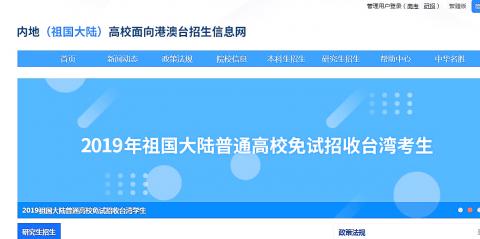Democratic Progressive Party (DPP) Legislator Lee Chun-yi (李俊俋) yesterday pledged to propose an “anti-united front act” based on US legislation to counteract “severe undermining of Taiwanese democratic values” by Chinese “united front” tactics.
Beijing’s tactics include actions such as purchasing Taiwanese produce, promoting travel to counties and cities governed by the Chinese Nationalist Party (KMT) and hosting Kaohsiung Mayor Han Kuo-yu’s (韓國瑜) visit to China last month, Lee said.
The world has recognized the threat of Chinese infiltration, he said, calling on the nation to face the issue.

Screen grab from the Internet
Other nations have enacted legislation to prevent infiltration via finance and media, Lee said.
“As the main target of Chinese infiltration and aggression, it is necessary to establish legislation to counter China’s ‘Anti-Secession’ Law,” Lee said.
Lee said his proposed act would focus on newer “united front” tactics that utilize media and commerce, while allowing extant laws to continue to govern their respective jurisdictions.
Lee said he is still drafting the bill and would reference US legislation, adding that the main difficulty would be defining what constitutes “united front” tactics, while observing the freedoms of speech and movement.
For politicians, short of declaring support for the “one country, two systems” concept, the freedom of speech should be respected, Lee said.
The lawmaker said he envisages creating a cross-agency task force to enforce the law, as the Mainland Affairs Council (MAC) and the National Communications Commission have their own areas of governance.
The National Security Bureau would be best suited for the duty, but it could not answer directly to the Legislative Yuan due to the nature of its responsibilities, Lee added.
In related news, China’s Fujian Province has completed preliminary studies on how to provide power to Kinmen and Lienchang counties, as well as water to Matsu, China’s Taiwan Affairs Office said.
Efforts to provide Kinmen and Lienchang counties with natural gas and the construction of bridges linking the islands to China’s Fujian are being mulled, it added.
Kinmen County Commissioner Liu Tseng-ying (劉增應) on March 20 said that he hoped the 2km bridge between the Huangqi Peninsula and Donggu Atoll (東古礁) would be prioritized.
The MAC has said that the bridge must be assessed and approved by the central government.
China’s policy of the “new four links” — water, electricity, natural gas and bridges — is geared to bring the residents of Kinmen and Matsu over to its side while pressuring the DPP administration, National Sun Yat-sen University professor Lin Wen-cheng (林文程) said.
From Beijing’s perspective, due to the counties’ locations and unique statuses, it could be easier for “united front” tactics to work there than in other counties and cities in Taiwan, Lin said.

AIR SUPPORT: The Ministry of National Defense thanked the US for the delivery, adding that it was an indicator of the White House’s commitment to the Taiwan Relations Act Deputy Minister of National Defense Po Horng-huei (柏鴻輝) and Representative to the US Alexander Yui on Friday attended a delivery ceremony for the first of Taiwan’s long-awaited 66 F-16C/D Block 70 jets at a Lockheed Martin Corp factory in Greenville, South Carolina. “We are so proud to be the global home of the F-16 and to support Taiwan’s air defense capabilities,” US Representative William Timmons wrote on X, alongside a photograph of Taiwanese and US officials at the event. The F-16C/D Block 70 jets Taiwan ordered have the same capabilities as aircraft that had been upgraded to F-16Vs. The batch of Lockheed Martin

GRIDLOCK: The National Fire Agency’s Special Search and Rescue team is on standby to travel to the countries to help out with the rescue effort A powerful earthquake rocked Myanmar and neighboring Thailand yesterday, killing at least three people in Bangkok and burying dozens when a high-rise building under construction collapsed. Footage shared on social media from Myanmar’s second-largest city showed widespread destruction, raising fears that many were trapped under the rubble or killed. The magnitude 7.7 earthquake, with an epicenter near Mandalay in Myanmar, struck at midday and was followed by a strong magnitude 6.4 aftershock. The extent of death, injury and destruction — especially in Myanmar, which is embroiled in a civil war and where information is tightly controlled at the best of times —

China's military today said it began joint army, navy and rocket force exercises around Taiwan to "serve as a stern warning and powerful deterrent against Taiwanese independence," calling President William Lai (賴清德) a "parasite." The exercises come after Lai called Beijing a "foreign hostile force" last month. More than 10 Chinese military ships approached close to Taiwan's 24 nautical mile (44.4km) contiguous zone this morning and Taiwan sent its own warships to respond, two senior Taiwanese officials said. Taiwan has not yet detected any live fire by the Chinese military so far, one of the officials said. The drills took place after US Secretary

THUGGISH BEHAVIOR: Encouraging people to report independence supporters is another intimidation tactic that threatens cross-strait peace, the state department said China setting up an online system for reporting “Taiwanese independence” advocates is an “irresponsible and reprehensible” act, a US government spokesperson said on Friday. “China’s call for private individuals to report on alleged ‘persecution or suppression’ by supposed ‘Taiwan independence henchmen and accomplices’ is irresponsible and reprehensible,” an unnamed US Department of State spokesperson told the Central News Agency in an e-mail. The move is part of Beijing’s “intimidation campaign” against Taiwan and its supporters, and is “threatening free speech around the world, destabilizing the Indo-Pacific region, and deliberately eroding the cross-strait status quo,” the spokesperson said. The Chinese Communist Party’s “threats